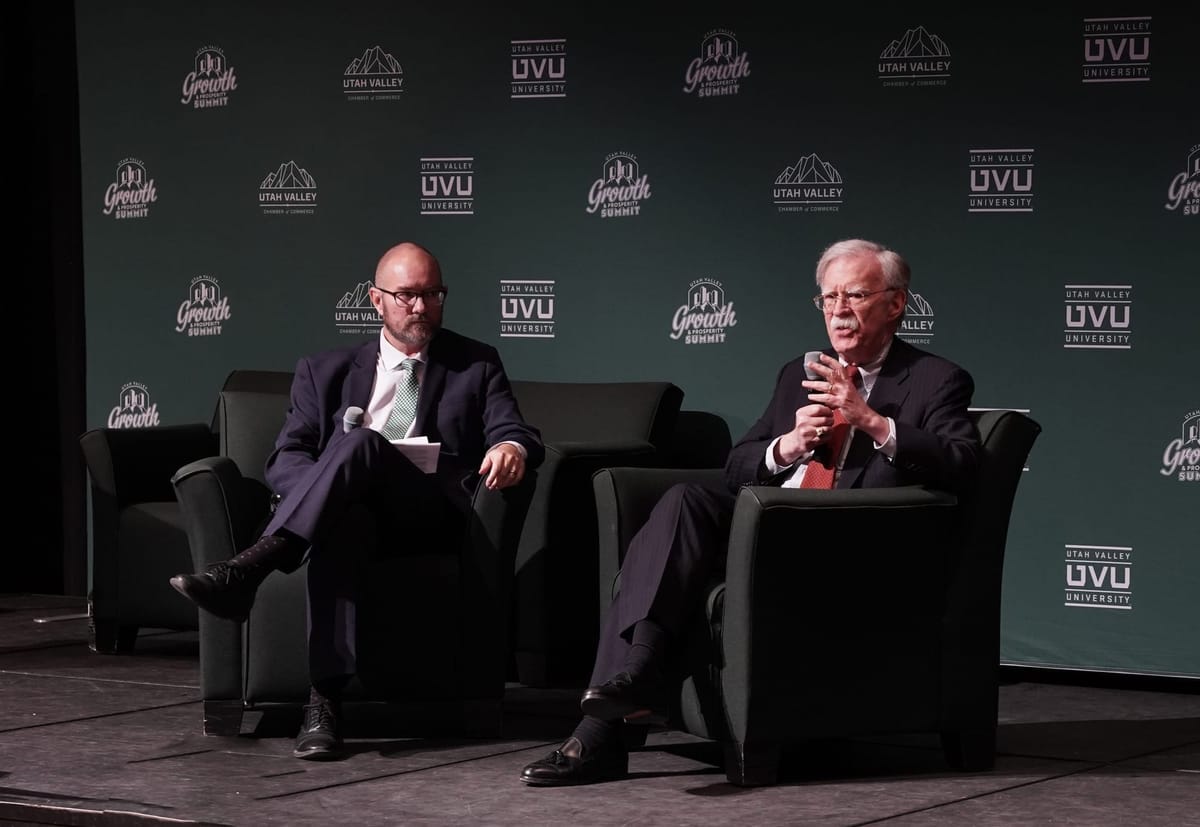

Orem, Utah, November 7, 2024
Over 500 business and community leaders convened at Utah Valley University (UVU) for the third annual Growth & Prosperity Summit to discuss Utah County’s future. Co-hosted by the Utah Valley Chamber of Commerce and the Gary R. Herbert Institute for Public Policy at UVU, the Growth Summit convened nationally renowned speakers and fostered in-depth collaboration, meaningful networking and knowledge sharing among leading professionals with the goal of driving economic opportunity and prosperity in Utah Valley.
Speakers included:
- John Robert Bolton, diplomat, former U.S. National Security Advisor, and former US Ambassador to the United Nations
- Spencer Cox, newly re-elected Utah Governor
- Astrid Tuminez, Utah Valley University President
- Mike Lee, U.S. Senator
- Gary Herbert, Former Utah Governor
- Natalie Gochnour, noted economics and Kem C. Gardner Policy Institute Director
- Curtis Blair, Utah Valley Chamber of Commerce President & CEO
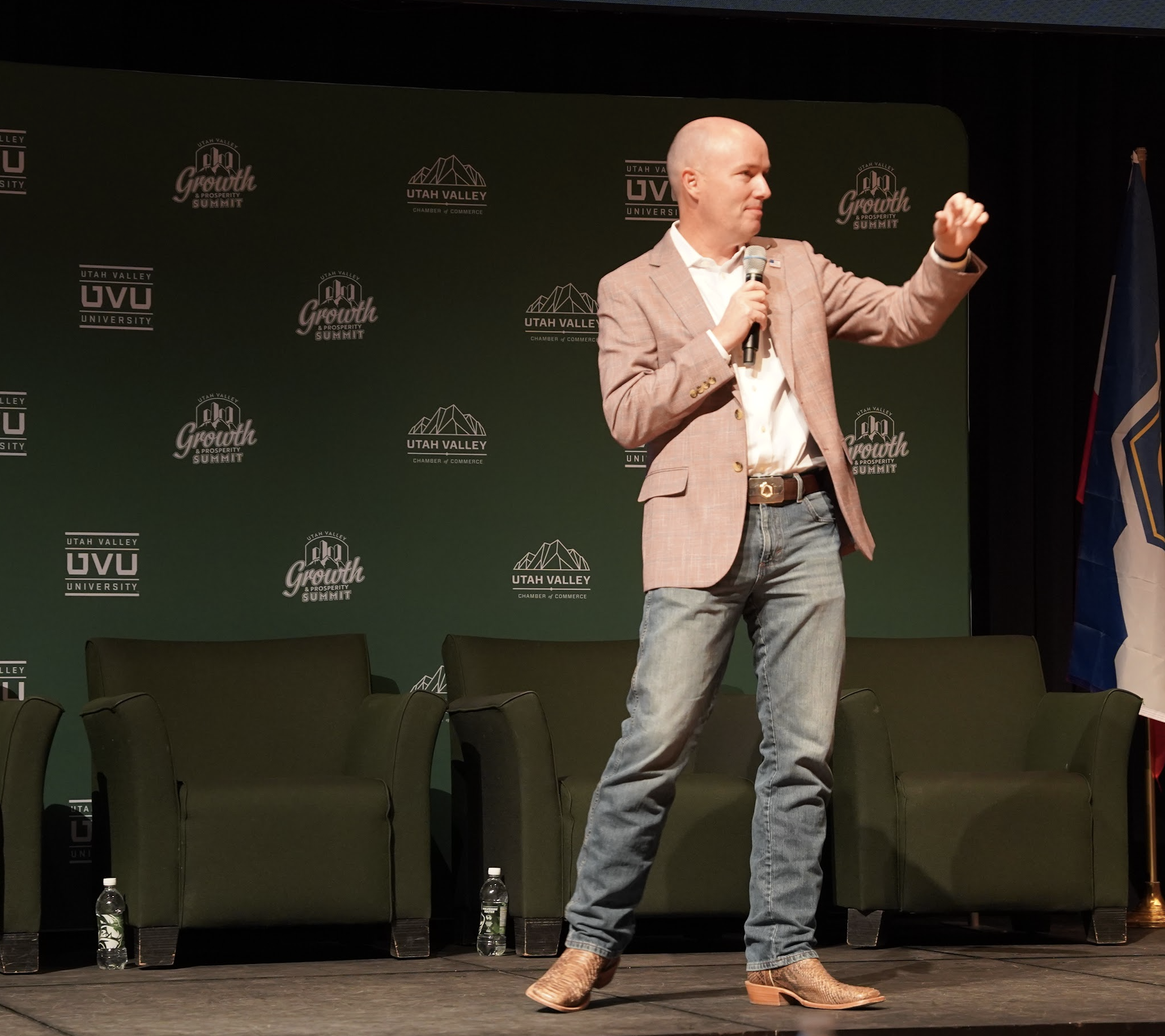
The Growth & Prosperity Summit's theme was “THRIVE,” an acronym for the following concepts:
- Transportation and Infrastructure
- Healthcare and Housing
- Recreation and Resources
- Innovation and Business
- Valley Vision and Values
- Education and Workforce Development
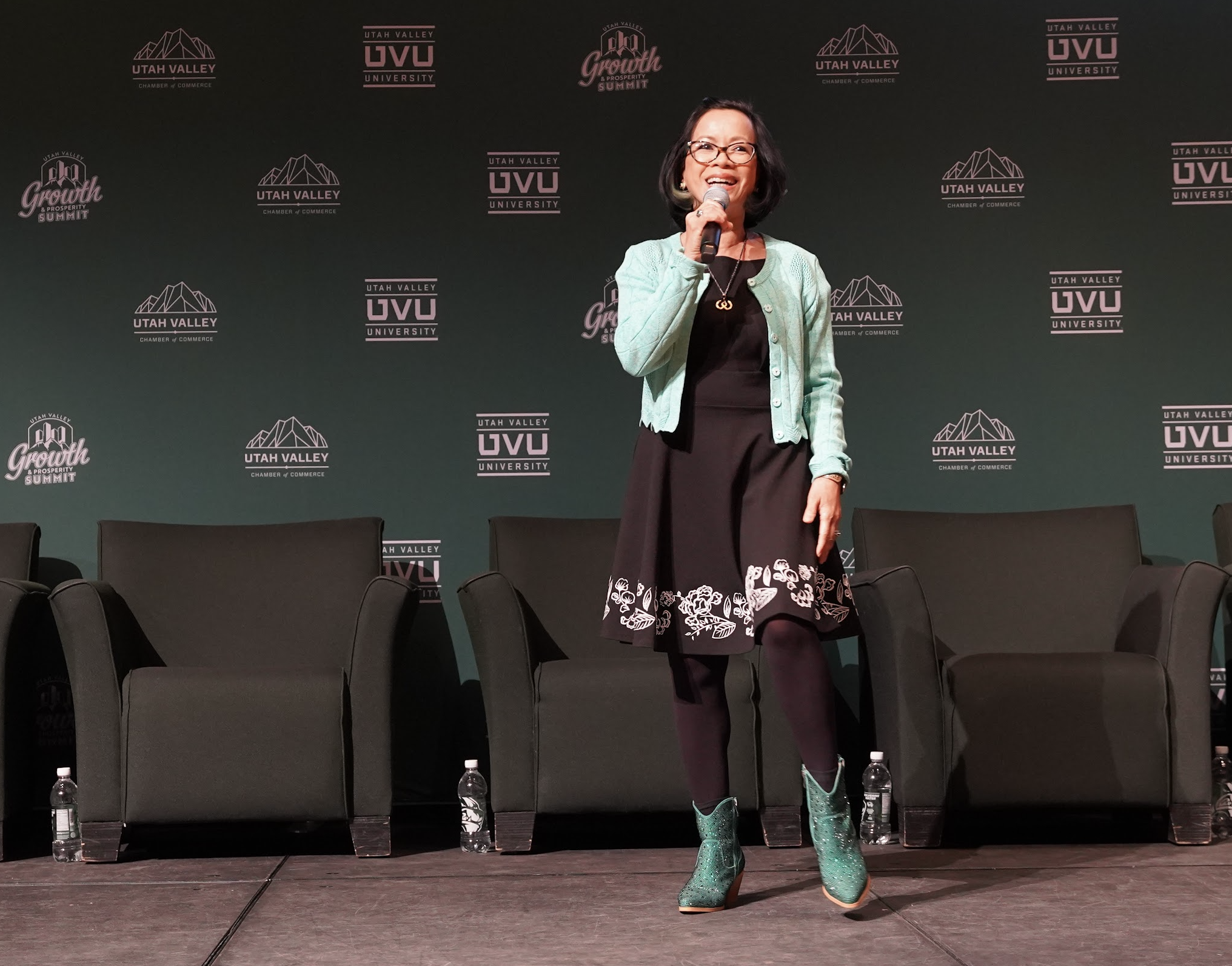
Much of the Summit focused on local issues, including warm welcomes from Governor Spencer Cox and UVU President Astrid Tuminez, both sporting cowboy boots; a detailed economic overview of both Utah and Utah County, provided by Natalie Gochnour; a compelling proposal involving the repurposing of BLM land for coping with the influx of new immigrants to Utah, delivered by its champion in the US Senate, Senator Mike Lee; updates on The Point, including a sneak peek at Convergence Hall; and a host of other strong presentations on local issues.
The culminating keynote event shifted from local to global issues as delivered via a wide-ranging conversation featuring Ambassador John Bolton who shared his views and concerns on myriad, mostly international topics, including, the shifting global order, the US-NATO relationship, and the potential for misuse of technology.
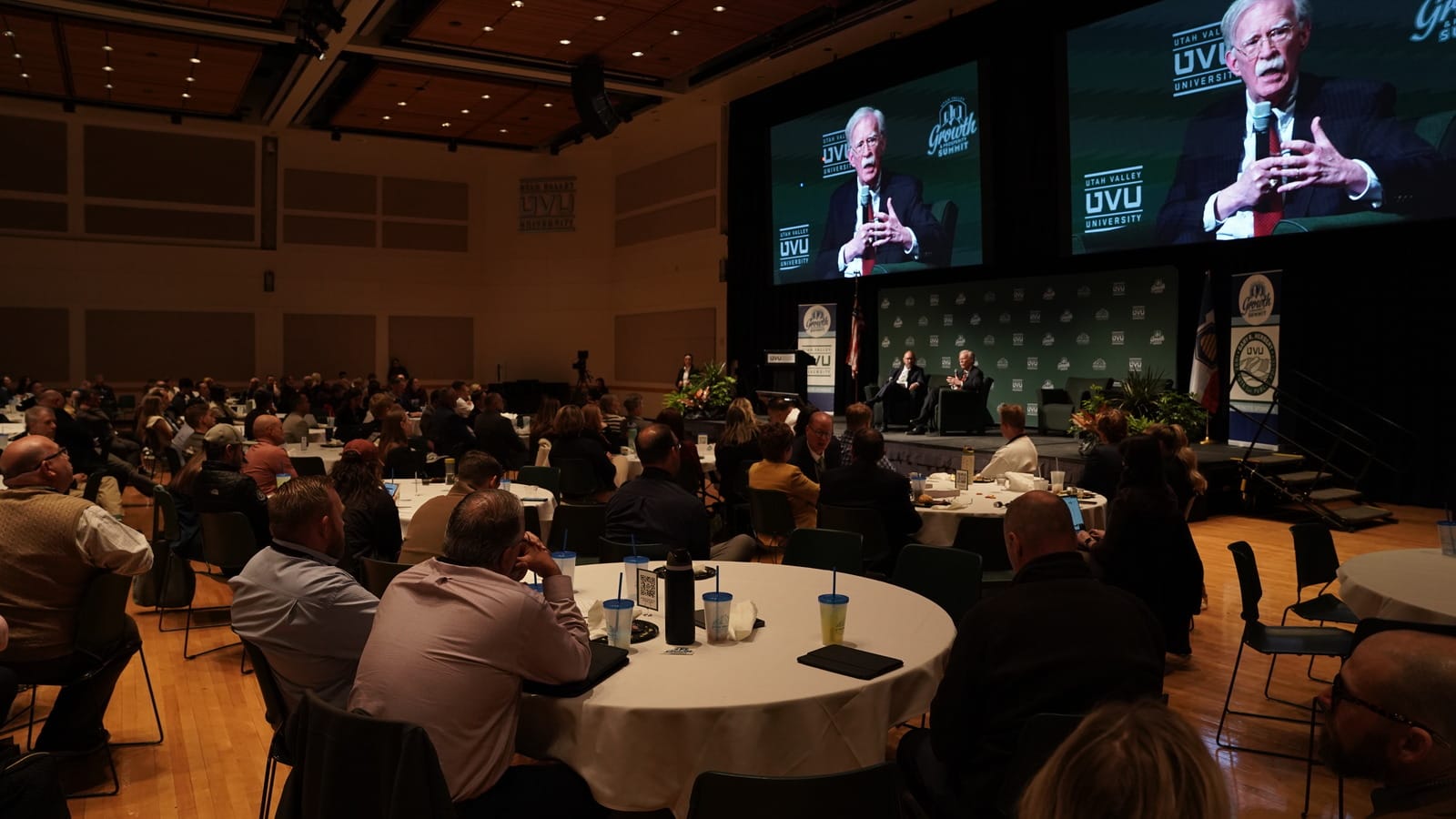
Dr. Ryan Vogel, an associate professor at UVU and its director of the Center for National Security Studies, moderated the conversation with Ambassador Bolton. He brought up technology and the rise of AI. Ambassador Bolton pointed out that AI is being applied to virtually everything new in computing. He quickly shifted the conversation to the potential for misuses of technology, including its use in asymmetric warfare that could disrupt society and exploit vulnerabilities in the nation's information technology and telecommunications infrastructure.
"Any disruption to that infrastructure could cause incredible damage," said Ambassador Bolton. "If you take down the national air traffic control system, if you make it impossible to gauge what's going through oil and natural gas pipelines and a whole range of similar areas, it can damage us in very significant ways."
Ambassador Bolton also discussed the shift from a bipolar international order to a tri-polar configuration, due to the rise of China, that the nation and the new Trump administration, in particular, will need to deal with.
"The power of nuclear weapons remains the most important power that we have to defend ourselves with...and that others have to threaten us with. In the Cold War, all of our deterrence theories and all of our nuclear capabilities were based on what was essentially a bipolar nuclear standoff between the US and the Soviet Union. As China builds up its nuclear arsenal—now estimated to be 1,000 deliverable weapons by 2030, the blink of an eye in the nuclear field—is almost an equal to the treaty limits that Russia and the US are under, at 1550 weapons per country. We will be living in a tripolar nuclear world. That's like saying you're going from playing chess (with two people) to playing chess with three people. A lot of calculations on what we need with conventional weapons go out the window when there are three equal peer players. It puts us at much greater risk, since the odds of Russia and China in conflict with one another are close to zero at this point, but both of them could be allied against us. This is the kind of thing we need to talk about in the national political debate. I have strong opinions about it. Others will have strong opinions too. But who's debating it? Who's hearing about it on television? It's just not happening."
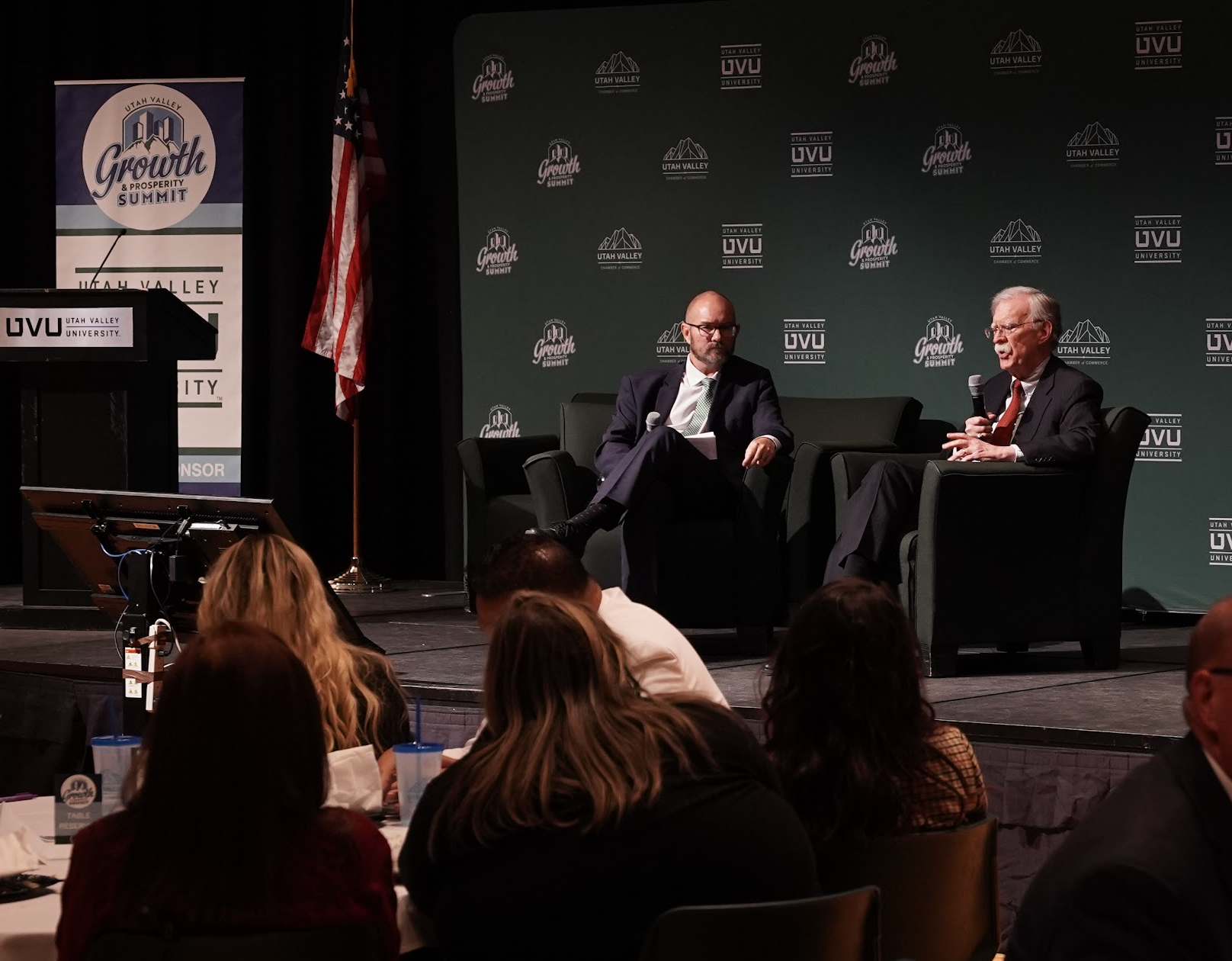
Regarding the state of information security in US private sector organizations and public sector organizations, Ambassador Bolton lamented, "I think we are behind. We're at risk. We've woken up to the problem late. I think we're making significant progress, but we've got a lot more to do.
Ambassador Bolton's concerns about information security are not just about technology that has a military application, but it extends to technology being used in the private sector, by American consumers.
He continued, "You've heard about sanctions and restrictions imposed on Chinese companies like Huawei and ZTE. These are not telecommunications companies. They are arms of the Chinese state that are trying to get complete control over fifth generation telecommunications, which they're better able to do than less well developed systems because of the very advantages of fifth generation telecoms; it's more evenly spread. There aren't key areas you can protect. It's faster, and that allows the Chinese to exploit it."
He pointed out how the Chinese are using TikTok. He said it is not the content on the popular social media platform that concerns him as much as it is the personal information of people who use it that is being extracted.
"You've heard of the controversy around TikTok. It has nothing to do with what people see on TikTok. It's got nothing to do with TikTok content. This is not a restriction on freedom of speech. It is about information. It has the potential to be used to vacuum up information about the people who use TikTok. That data goes into a Chinese database for whatever use they're going to make of it later. China's been doing this for 20 years. For example, all federal personnel records were lifted some years back, copied, and are now in Beijing's possession...including every FBI background investigation that's ever been done by any federal employee with a security clearance...They've been doing this over and over again. We're now waking up, but we've lost a lot of time. I have confidence in our creativity and technological capability, but we've been played by Russia and China and others in ways that we're still not fully aware of."
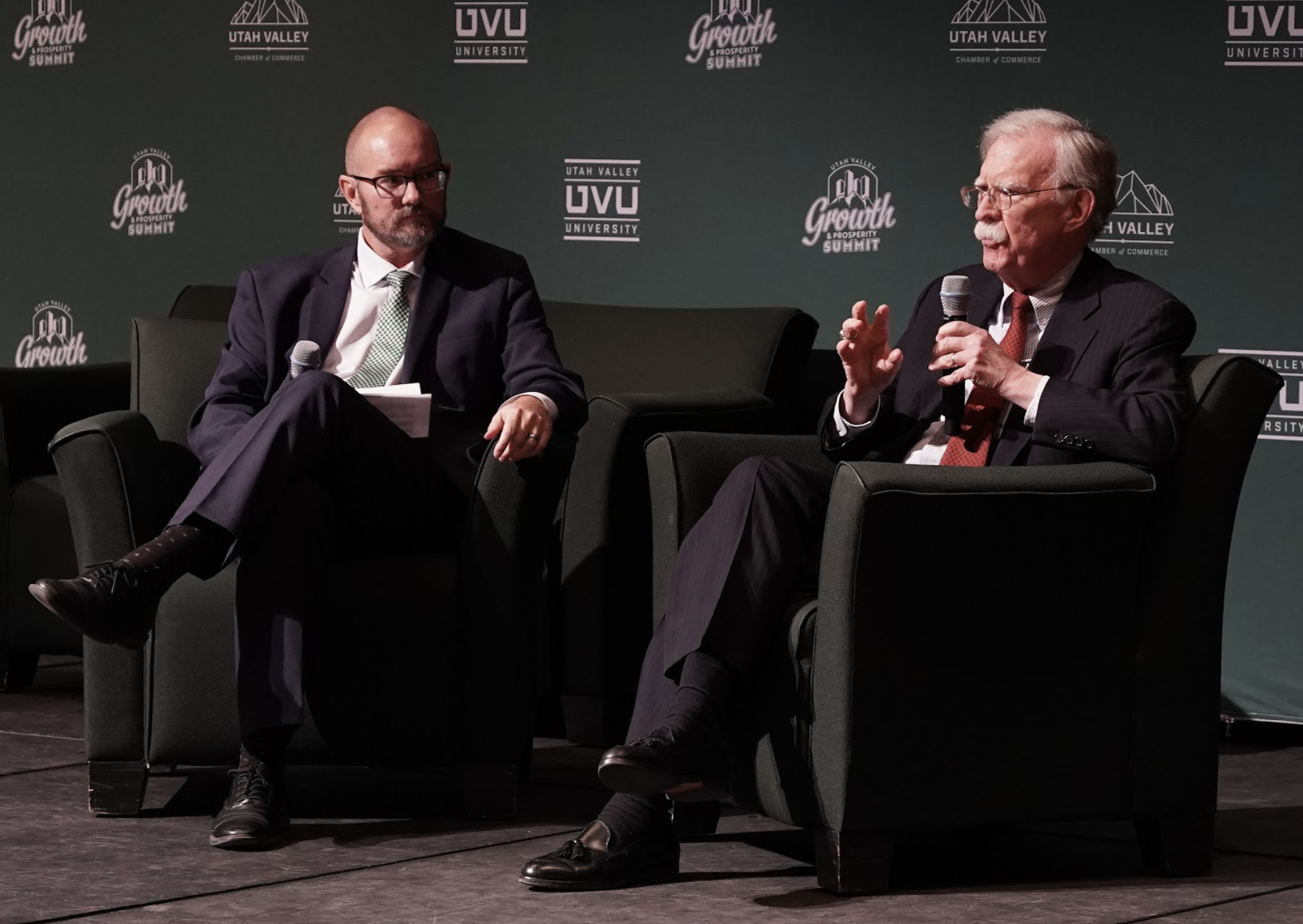
The topic of NATO came up repeatedly. Ambassador Bolton argued that it is in the US interests to have a strong NATO and for continued US involvement, but he thinks NATO members need to step up their own investment in it.
"I think everybody's got to do more across the board. We're going to find out whether people are really interested enough in their own defense. Japan is already engaged in doubling its spending to go from one to 2% of GDP over five years. If they continue that, it will make Japan the third largest military in the world, after the US and China. What are the Germans doing? Very little. This is a problem that American diplomats have seen for a long time. I give Trump credit for raising the level of awareness of it. We should expect our friends to do more, but do we shoot ourselves in the foot because they're not doing enough? We've got to worry about our own defense and do what we think is necessary to bring the others along with us. I'm not saying you can snap your fingers and do it, but this is part of this mirage that emerged at the end of the Cold War, when everybody thought there were no more problems. It was wrong then. It is increasingly apparent it is wrong today."
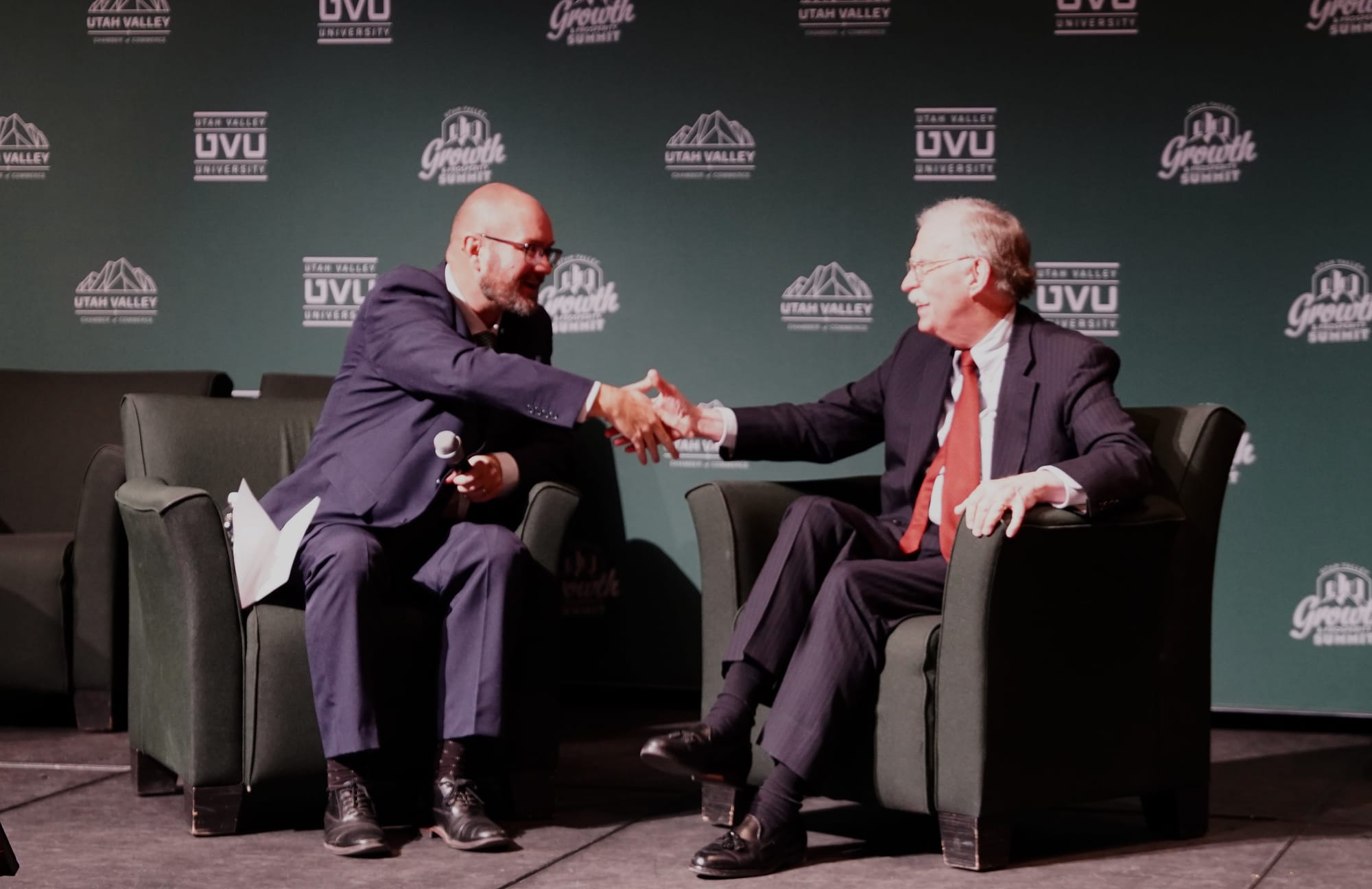
More information about the Growth Summit can be found at bit.ly/Growth-Prosperity.
Utah Valley Chamber of Commerce
The Utah Valley Chamber of Commerce advocates for the business community, fosters meaningful economic opportunity and improves the quality of life for Utahns in the region. As the voice for Utah Valley business, the Chamber leads, convenes, and exerts influence to strengthen an already dynamic business climate in the state that supports all sectors of the Utah economy.
Gary R. Herbert Institute for Public Policy
The Gary R. Herbert Institute for Public Policy opened in 2021 and honors Utah’s 17th Governor Gary Herbert and his 31-year legacy of community service. The Institute is a non-partisan, public policy institute with a mission to develop future policy leaders, gather the community, and build trust in civic institutions.

